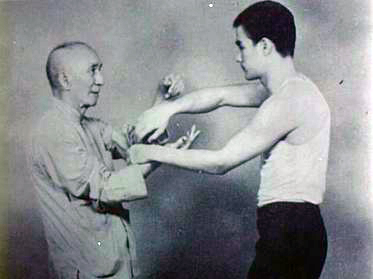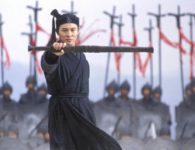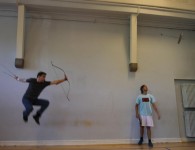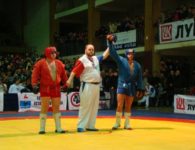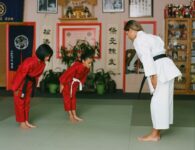If you’re reading this blog on this website, chances are that you’re already a firm believer in the importance of martial arts. And you’re probably a believer at least in part because you’ve seen and felt the impact that your training has had on your wellbeing.
On an individual level, most of us have probably noticed that our martial arts training, whatever the discipline, has improved our lives in some way. Maybe it’s made us physically stronger or healthier. Maybe it’s improved our focus and our self-determination. Maybe it’s even completely changed our outlook and made us feel better about ourselves and our lives.
But what do the experts say about the possible psychological benefits of martial arts training?
Well, the short answer is that they’re still figuring it out. The study of the social influence of martial arts is still relatively young. There’s so much research left to be done and so many variables to consider, from the type of training (including specific martial arts, as well as the difference between “hard” and “soft” ones), to the type of people involved in the study, to the philosophy of the instructors teaching them. (For a deeper look at these issues, the research that is out there, and what can and should be done in the future, we highly recommend checking out this 2010 review from the Journal of Sports Science & Medicine.)
But here are some interesting things that those experts have started to notice so far:
It can help students manage aggression.
There are a number of studies that have observed a reduction in aggressive behavior in young people who take up martial arts training. Iulius-Cezar Macarie and Ron Roberts touch upon some of them in their article “Martial Arts and Mental Health” for Contemporary Psychotherapy.
One particular case they bring up in their piece is a 2001 study called An effective approach to violence prevention: traditional martial arts in middle school, which followed 60 boys with “problematic behavior profiles” who were in a school-based traditional martial arts training program and a control group of boys who were still on the waiting list for training. “Schoolteachers were asked to rate the students on impulsiveness, resistance to rules, self-concept and inappropriate behavior,” Macarie and Roberts write. “After three months of training, the students within the treatment group had improved their behavior in class and all exclusions following the onset of the study (six in all) occurred in the control group. The teachers rated the martial arts students as less impulsive and less aggressive towards other colleagues. “
Other studies have come to similar conclusions. But it can depend on the type of person doing the training and the martial art they practice. Interestingly enough, there’s at least one study out there that suggests that martial arts might make women more aggressive in certain situations.
Attitudes toward violent conflict resolution among male and female karateka in comparison with practitioners of other sports observed that karate training might have made the study’s female participants more aggressive. “Male karateka held relatively negative attitudes toward violent conflict resolution, whereas the opposite was noted for female karateka,” the authors conclude.
It can help develop discipline.
In their 2004 study, Promoting self-regulation through school-based martial arts training, Kimberly D. Lakes and William T. Hoyt examined the impact of Taekwondo training on the self-regulatory abilities of children from Kindergarten through grade five. One group of kids was assigned to martial arts training while the control group was assigned traditional physical education instead. “After a 3-month intervention, results indicated that the martial arts group demonstrated greater improvements than the comparison group in areas of cognitive self-regulation, affective self-regulation, prosocial behavior, classroom conduct, and performance on a mental math test,” they write.
They did note that the boys showed more improvements in these areas than girls in their study, but believed more research –and a combination of male and female instructors – was necessary in future studies to better understand why that might be.
The right training can have a particularly positive influence on at risk youth and help them to to improve their focus and self-discipline. A 2013 study, Using Integra Mindfulness Martial Arts to Address Self-regulation Challenges in Youth with Learning Disabilities: A Qualitative Exploration, showed that a combination of martial arts instruction and mindful meditation could have can be helpful for young people struggling with cognitive issues. The martial arts component appealed to their desire to develop mastery and pride. The mindfulness “was identified as helpful in promoting a sense of calm, tolerance, and acceptance, and self-understanding in youth.”
It can build self-esteem.
In one part of The Social-Psychological Outcomes of Martial Arts Practise Among Youth: A Review, Jikkemien Vertonghen and Marc Theeboom look at a number of fairly recent studies on the influence of Taekwondo training on adolescent boys. A 2009 study (Aggression and psychological well-being of adolescent Taekwondo participants in comparison with hockey participants and non-sport group ) compared the psychological state of Taekwondo practitioners, hockey players, and a group of boys not involved in any sport. “Adolescents between the ages of 15 to 18 years were asked to administer the ‘Psychological Well-being Questionnaire’. Results indicated that the personal growth and self-acceptance scores of Taekwondo- in were significantly higher than those of the hockey players and the non-sport group,” Vertonghen and Theeboom write.
They also reference a 1994 study (Relating scales on the children personality questionnaire to training time and belt rank in ATA Taekwondo. Perceptual and Motor Skills) that produced similar results: “[The study’s authors] used the ‘Children’s Personality Questionnaire’ and found that longer times in Taekwondo training were associated with more self-reliance and enthusiastic optimism.”
“In general,” Vertonghen and Theeboom conclude, “research conducted after the mid ’90s and focusing on youth showed that martial arts practice has positive effects on the personality profiles of adolescents, which clearly confirms findings of earlier studies.”
As is always the case with studies of this nature, there’s still far more that we don’t fully understand about the psychological benefits of martial arts than what we do, and we’re learning more every day. The one thing we can know for sure, though, is how our own training has changed our lives, usually for the better, and how that makes us want to go back and improve as martial artists and as people every single day.
It is kind of cool when the experts start to prove what we already know, though, isn’t it?
What kind of influence has your training had on your life? Let us know in the comments!


